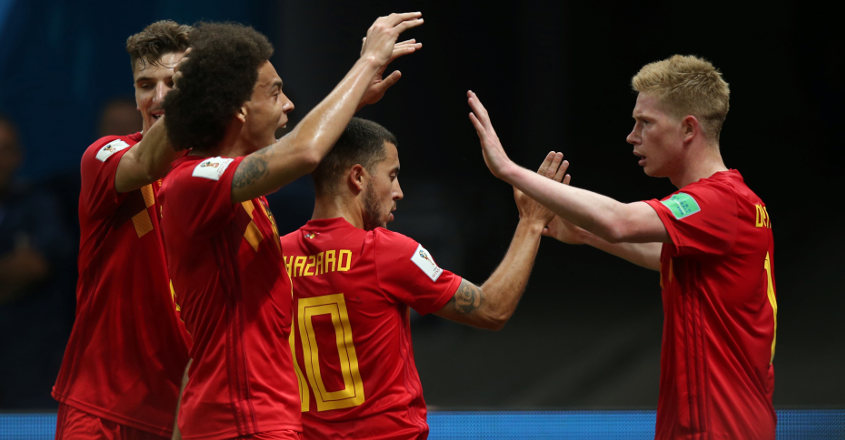
Every world cup has had its dark horses. Over the past decade, Belgium have grown stronger and stronger to the extent that they are being tipped as dark horses to end the dominance of the eternal favourites like Brazil and Germany.
From being the ‘the team to watch’ to becoming ‘the team to beat’, Belgium’s golden generation has come a long way. In Russia, the Red Devils have lived up to their billing, after much waiting, in reaching a World Cup semi-final and making a statement in the process by sinking favourites Brazil.
Belgium, who have never been a first-rank soccer nation, will start as favourites when they take on France in a last-four encounter at the Saint Petersburg Stadium on July 10.
The revival
To put it simply, it was two pieces of paper that set the Belgian soccer redemption in motion.
As a member of Belgium’s supporting staff at the 1990 World Cup in Italy, Michel Sablon was compiling a list of penalty-takers as their second-round clash with England looked destined for a penalty shoot-out. But English midfielder David Platt had other ideas as he scored his very first international goal to send England through to the quarter-final in the 119th minute. Disheartened, Sablon threw the list away.
Just over a decade later, Sablon started with another blank piece of paper, this time with the intention of revolutionising Belgian football in his role as the federation’s new technical director. He formulated an effective strategy laying emphasis on talent development programs with the aim of identifying promising youngsters at an early age. Additionally, a fixed system was employed in terms of formation (4-3-3) for every age-group team. It allowed greater flexibility among players and helped them hone their individual skills.
The Anderlecht way
Most of the players of the Spanish and the German squads that won the World Cup in 2010 and 2014 respectively came through various youth development programs run by clubs like FC Barcelona, Real Madrid and Bayern Munich.
Similarly, Anderlecht, the champions of the country’s Pro League, have been responsible for ushering in this so-called ‘Golden Generation’ for Belgium. Eight players of the current squad including Vincent Kompany, Romelu Lukaku, and Marouane Fellain are among the academy’s illustrious alumni. They all are shining examples of the success of Anderlecht's Purple Talents Project conceived by Michel Sablon.
